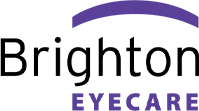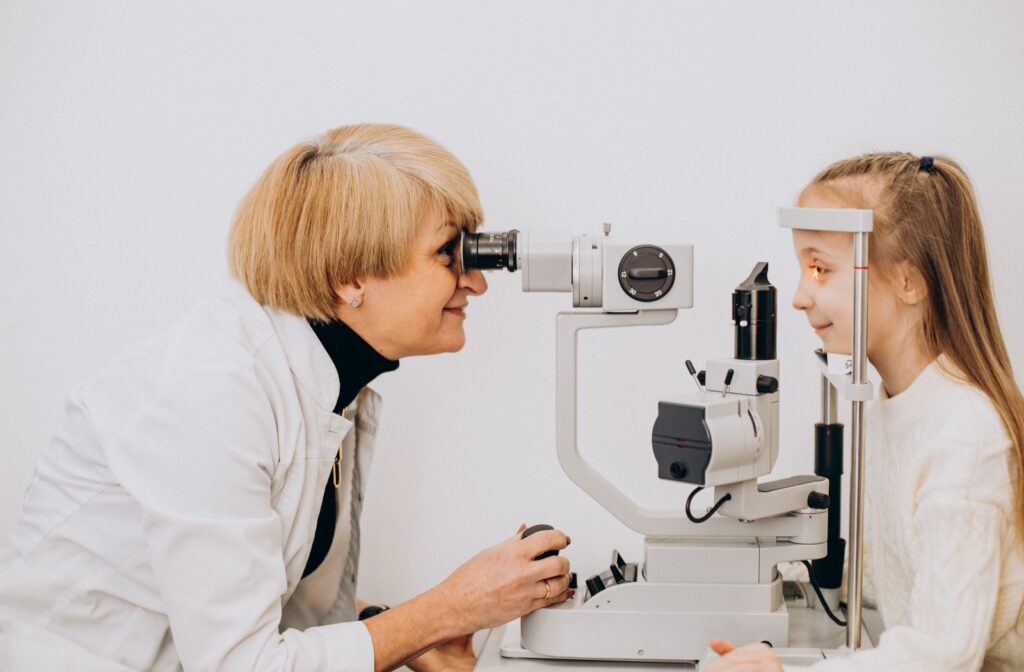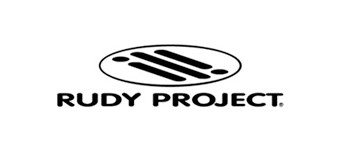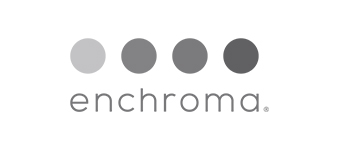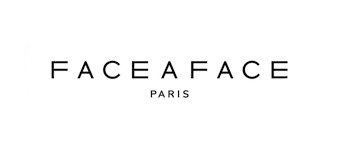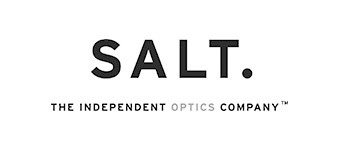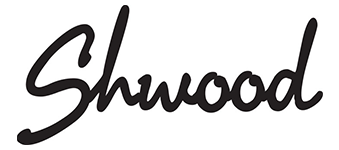You use your eyes every day, and just like your teeth, house, or car, your vision requires routine maintenance. But vision is more than how well you can see across a room.
By assessing multiple aspects of your vision and checking the health of your eyes’ structures, regular comprehensive eye exams can help you maintain your eye health and vision.
A visit to the eye doctor can catch problems for early intervention or help prevent more serious problems, from common vision problems like nearsightedness in kids to underlying health conditions like diabetes.
The Importance of Regular Eye Exams
An eye exam is more than reading letters on a chart. Like a routine physical with your family doctor, your eye doctor helps you monitor changes to your eye health over time. Eye exams are also crucial for early disease detection.
Many eye conditions, including glaucoma, retinal detachment, cataracts, and macular degeneration, are detectable during a routine exam, even before noticeable signs appear. Early detection preserves your treatment choices and helps safeguard your sight.
An eye exam can also uncover a general health concern, helping patients consult with relevant healthcare providers (like doctors and specialists) promptly. Sometimes, people discover they have diabetes, high blood pressure, or even brain tumours through an eye exam.
Eye Exams vs. Sight Tests
A comprehensive eye exam is not the same as a sight test or vision test. These tests, sometimes offered at stores that sell eyewear, can measure a person’s glasses prescription. But they do not assess eye health. Additionally, these tests may rely on equipment that doesn’t fully evaluate eye health.
You need a comprehensive eye exam to identify and manage serious eye conditions like glaucoma and diabetic retinopathy.
How Often Should You Get an Eye Exam?
Eyes change over time, and regular eye exams benefit people of all ages. The Canadian Association of Optometrists offers the following general guidelines:
- Infants should have their first eye exam between 6–9 months
- Kids 2–5 (preschool and kindergarten-aged children) should have at least one exam
- Youths 6–19 should get their eyes checked once a year
- Adults 20–64 should have an eye exam at least every 2 years
- People with diabetes should get an eye exam at least once a year
- Older adults (65+) should get an eye exam at least once a year
What to Expect During an Eye Exam
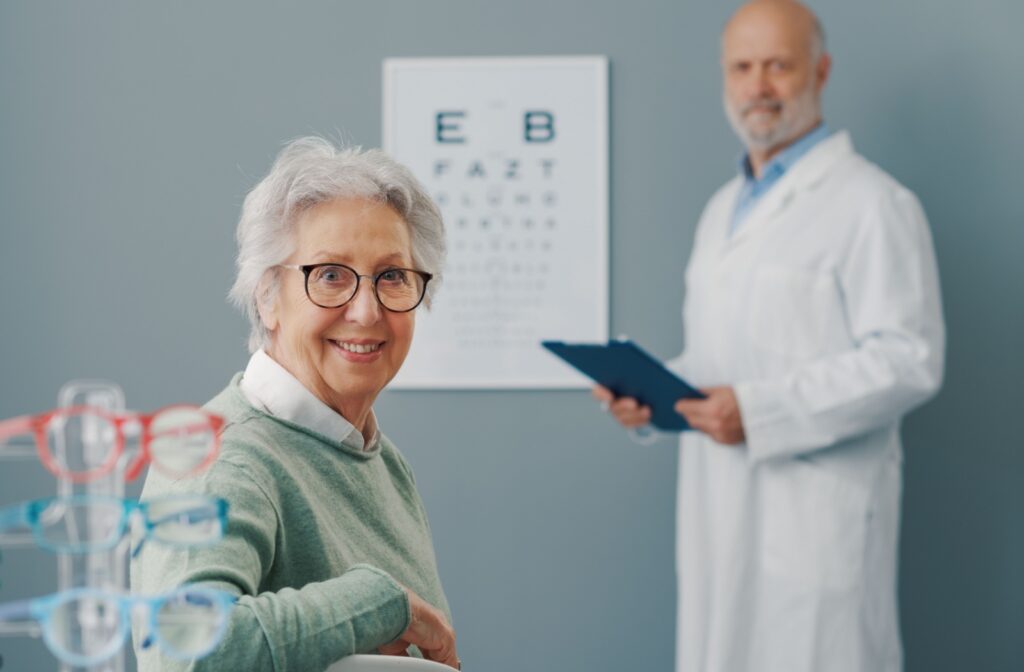
Your optometrist will use many tools and technologies, such as a slit lamp (to look at parts of the eye) and a tonometer (to measure eye pressure and identify glaucoma).
A comprehensive eye exam typically includes the following components.
Personal History & Needs
You and your optometrist may discuss your personal health history, family health history, and any present vision and eye health concerns. You may discuss how you use your eyes in everyday life, such as extended screen time or participation in sports requiring eye protection.
Vision Assessments
Your optometrist will assess and measure aspects of your vision.
Visual Acuity
Visual acuity is a measurement of how well you can focus. Your eye doctor may ask you to read letters on a chart or screen while covering one eye and then the other. Your visual acuity may be measured with or without corrective lenses.
Binocular Vision
Your binocular vision is how you use both eyes at the same time. The optometrist may analyze eye movements, depth perception, and sometimes hand-eye coordination.
Refractive Errors
Refractive errors are one of the most common vision problems. These include myopia (nearsightedness), hyperopia (farsightedness), astigmatism, and presbyopia (age-related farsightedness). An eye exam can identify refractive errors or if your prescription has changed.
Eye Health Assessment
Your optometrist will examine the health of your eyes from front to back:
- External structures & front of the eye, including the eyelids, tear glands, cornea, lens, iris, & pupil, to look for conditions like dry eye, blepharitis, or cataracts
- Internal structures & back of the eye, including the retina, macula, and blood vessels, to look for signs of macular degeneration, diabetic eye disease, & retinal disease
- Neurological assessments, including pupil reactions, peripheral vision, and how your eyes move, to evaluate eye function & health
Other Assessments
Your optometrist may undertake additional assessments. These may include testing colour vision or noninvasive retina, macula, or optic nerve scans.
How to Prepare for an Eye Exam
You generally don’t need to make special preparations for a basic eye exam, but the following tips may help:
- Know your family’s eye health & vision history
- Your eye doctor can monitor potential concerns you may be at risk for, as some conditions run in families
- Bring in your prescription eyewear
- Bring your glasses or contact lenses & tell your eye doctor if your lenses are meeting your needs
- Ask questions about your eye health
- Your eye doctor is your resource for eye health knowledge & can address any curiosities or concerns you may have
- Talk to us about how we can support you
- If you (or your child) are nervous about the eye exam or have accessibility concerns, let us know in advance so we can support you
Eye Exams for All Ages in Saskatoon
People of all ages benefit from getting their eyes checked regularly. A comprehensive eye exam can identify serious diseases before problems progress and become challenging to manage. Your optometrist can also identify appropriate, personalized prescription eyewear.
When you visit us for a comprehensive eye exam at Brighton Eyecare, we’ll use diagnostic tools to assess your eye health and vision, and we hope you’ll leave with a more in-depth understanding of your eye health. Book an eye exam in Saskatoon for you or your family today.
